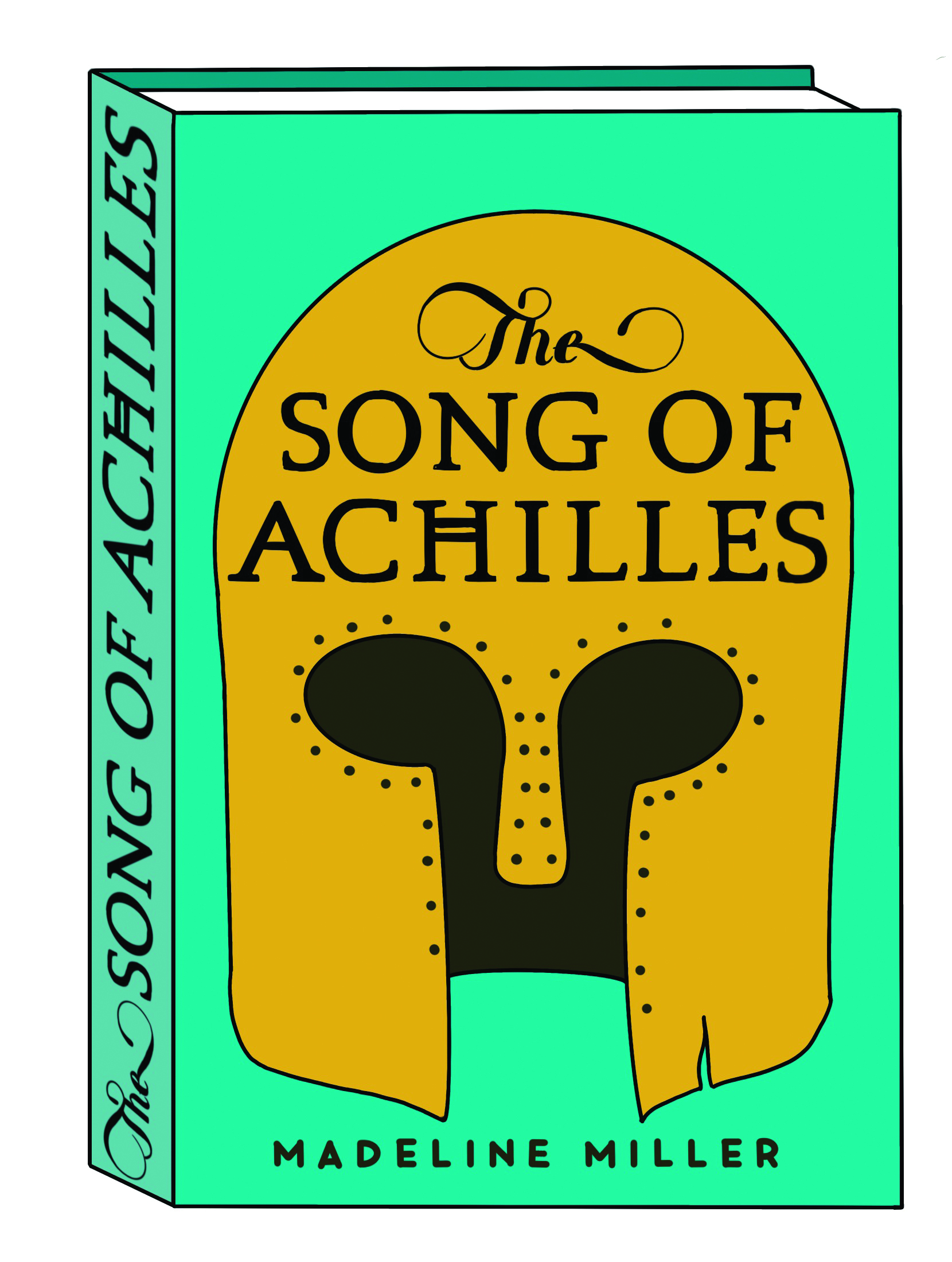Pandemic Picks: Returning myths to their gay glory
April 2, 2021
 This
piece represents the opinion of the author
.
This
piece represents the opinion of the author
.
I will never forgive people who make fun of other people for reading shitty, gay fan-fiction. In a country where people still ban books because of the sexual and romantic identities included in the pages or where a movie about gay characters can’t include a single fricking accurate sex scene, you’re just a downright terrible person if you hate on queer people for looking towards obscure Tumblr posts or websites for some form of media representation.
The first “gay” novel I ever read was “Maurice” by E.M. Forster—and God, did I think it was good. I wasn’t looking for a gay novel when I happened upon this classic; rather, I was merely completing a project for a high school English class where we read as many books by a certain author of the “canon” as we could. I knew I was queer by this point (hell, I knew I was queer at age six), but I hadn’t really chosen to explore queer media because I most definitely was not out. I’m not going to say that a gay novel gave me the courage to come out as queer. However, what I will say is that I came out two months after I finished this tale of three men in a love triangle.
The point is, queer media had a huge impact on me when I was young and still continues to do so. These days I’m no longer staying up late and watching every Troye Sivan YouTube video, but I am reading as much queer literature as I can get my hands on. This is where this week’s Pandemic Picks comes in. Part ancient Greek myth, part well-written fan-fiction, this is a novel worth celebrating for both its beautiful prose and its commitment to returning mythology to its gay glory.
The Book: “The Song of Achilles” by Madeline Miller
While the title may make you think that this novel centers around Achilles, it actually focuses on his partner Patroclus, the love of his life. The story of Achilles, the greatest warrior of Ancient Greece, and Patroclus has been debated for centuries. And although the Greeks were never conservative about this relationship, contemporary scholarship often still tries to argue that these two were “just friends.” Luckily for her readers, Madeline Miller is no such scholar. Instead, she embraces the love between these two men in this recreation of the myth.
 Sophie Lipset
Sophie LipsetTold from the point of view of Patroclus, the story follows Patroclus’s banishment from his father’s realm, the creation of his and Achilles’ bond, their training and burgeoning love at Chiron’s cave in the mountains (a centaur who taught the best of Greek heroes) and the devastating Trojan War. Through troubles with gods and goddesses, hiding—then celebrating—their affair, discovering what it means to love and, finally, what it means to die, this book keeps you glued to its pages. And although the myth is thousands of years old, Miller spins a magical tale that allows you to view the most intimate moments of these men’s lives. In doing so, she not only gives a glimpse of the eternal love that is possible for queer people but shows that history validates queerness with all of its quirks and complexities.
Why Bowdoin should read it:
No doubt there are many valuable and scholarly readings that can be done of “The Song of Achilles,” but this is not why I’m recommending you read it. You see, I think you need a break—just like I do. Spring is here and we’ve been trying to live our lives in a pandemic for officially over a year now. Let’s be honest with ourselves—Bowdoin didn’t really have a spring break. And if we are being really honest with ourselves, we’ve all been running on high-anxiety mode for the entire pandemic. It’s time to take a step back and get lost in a good book. “The Song of Achilles” can be that book.
I know it’s hard for some people to think that they can take the time out of their schedule to read a book for pleasure. Hell, some of you reading this probably question why you would take a washed-up senior’s advice on taking a break. The truth is, however, that in the broad scheme of things a lot of this shit doesn’t matter. That thing you are supposed to do, that grade you hope to get, that stress you are putting yourself through, it isn’t going to immortalize you in the way Achilles and Patroclus are—because only myths are immortal. So take a f*cking break, and read this book.
Happy reading.

Comments
Before submitting a comment, please review our comment policy. Some key points from the policy: